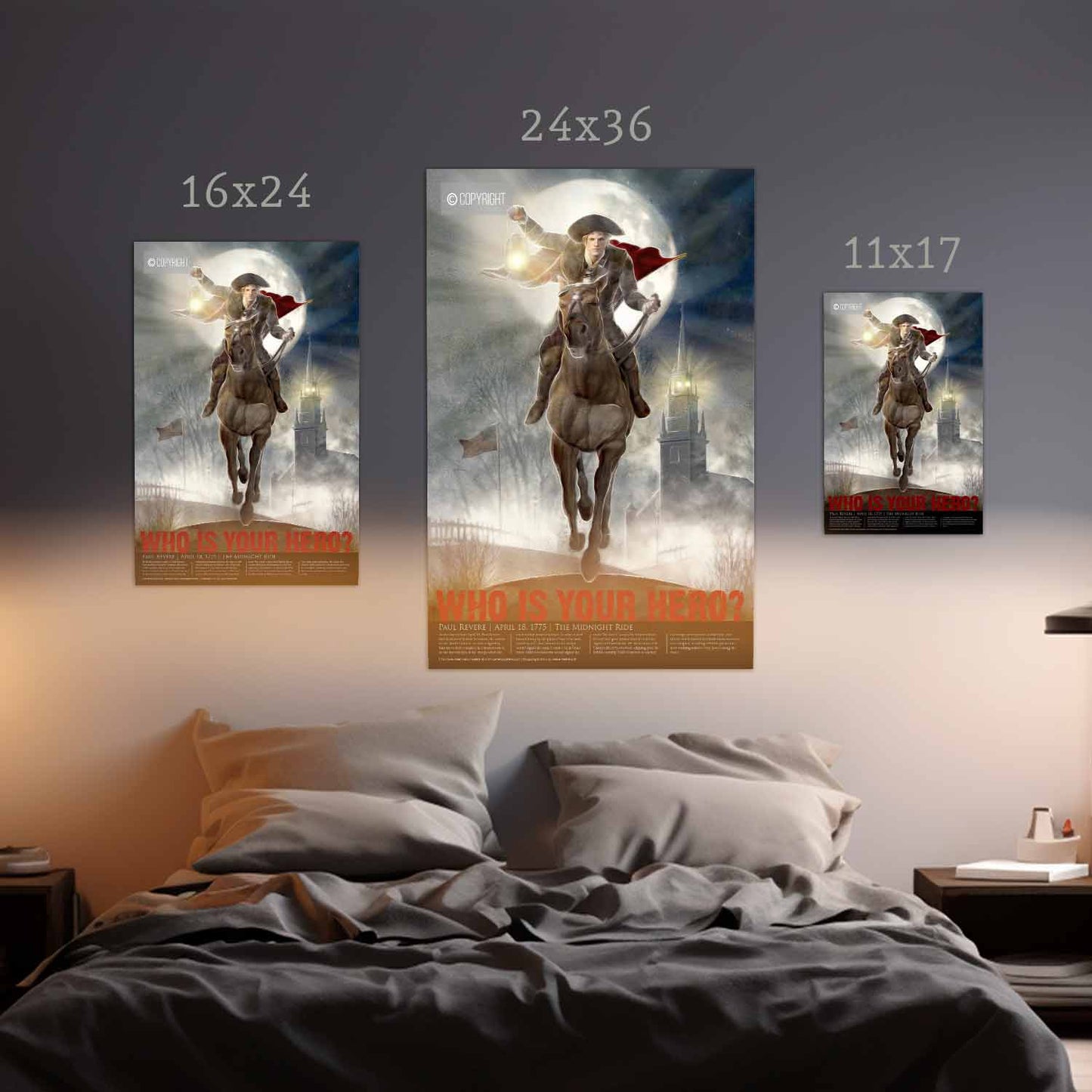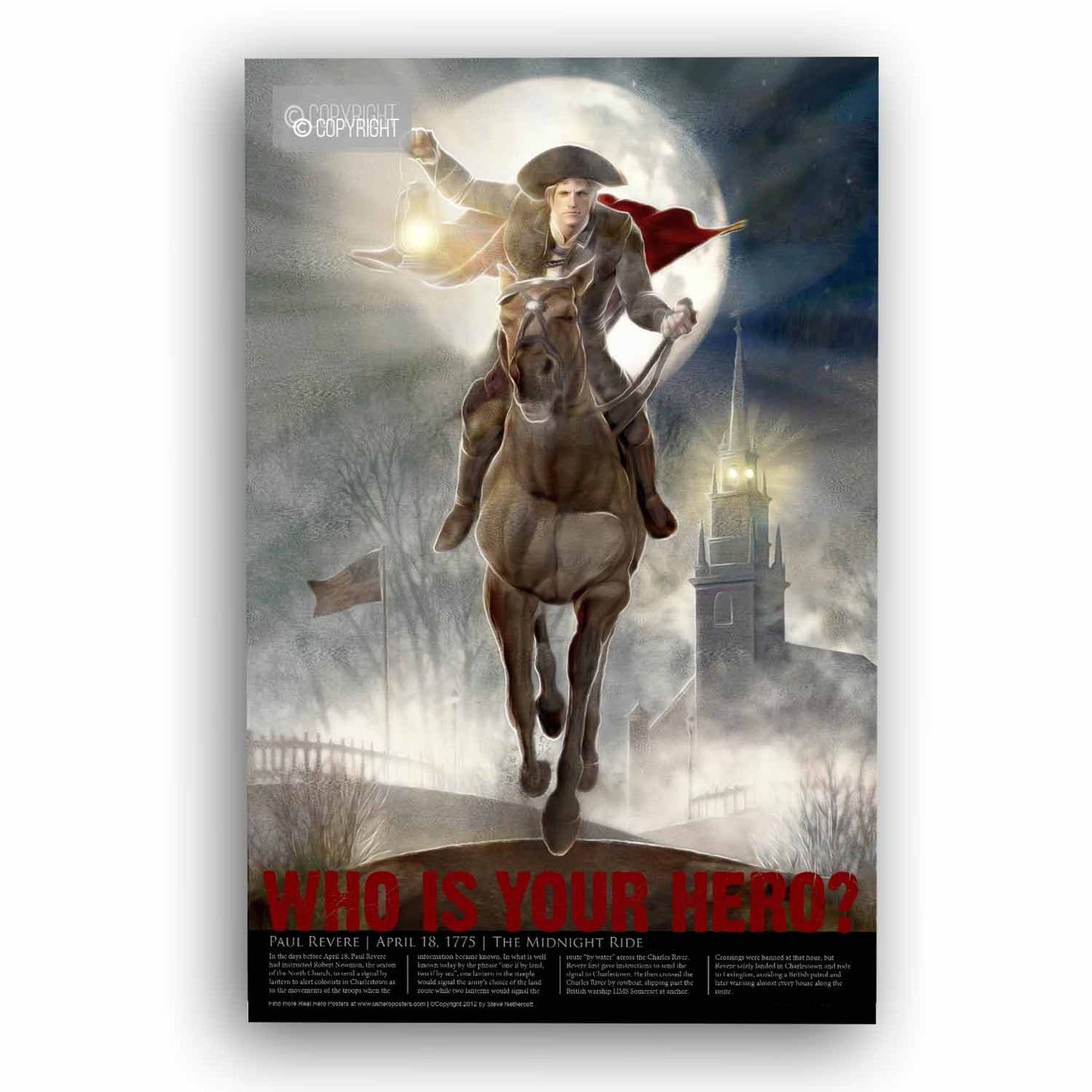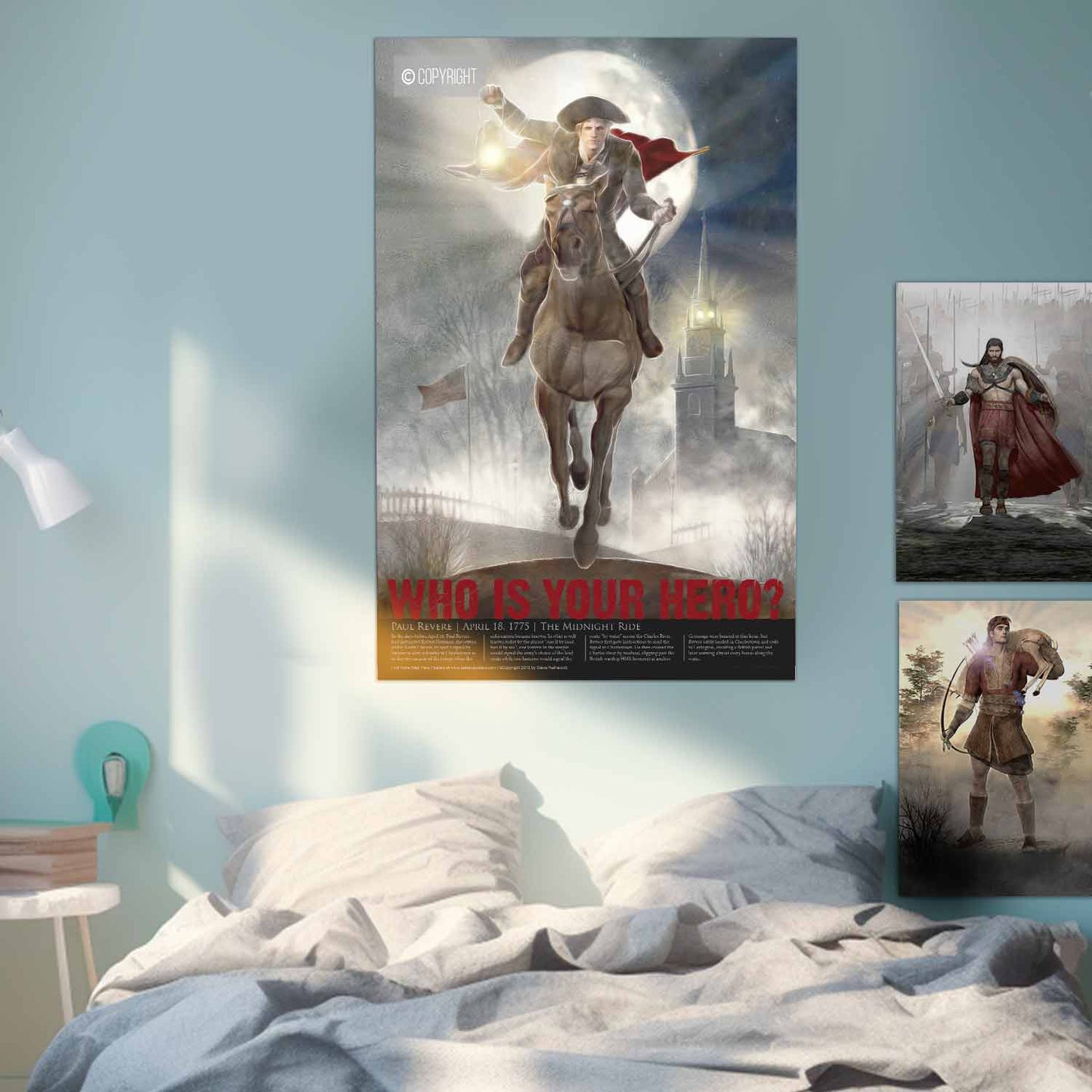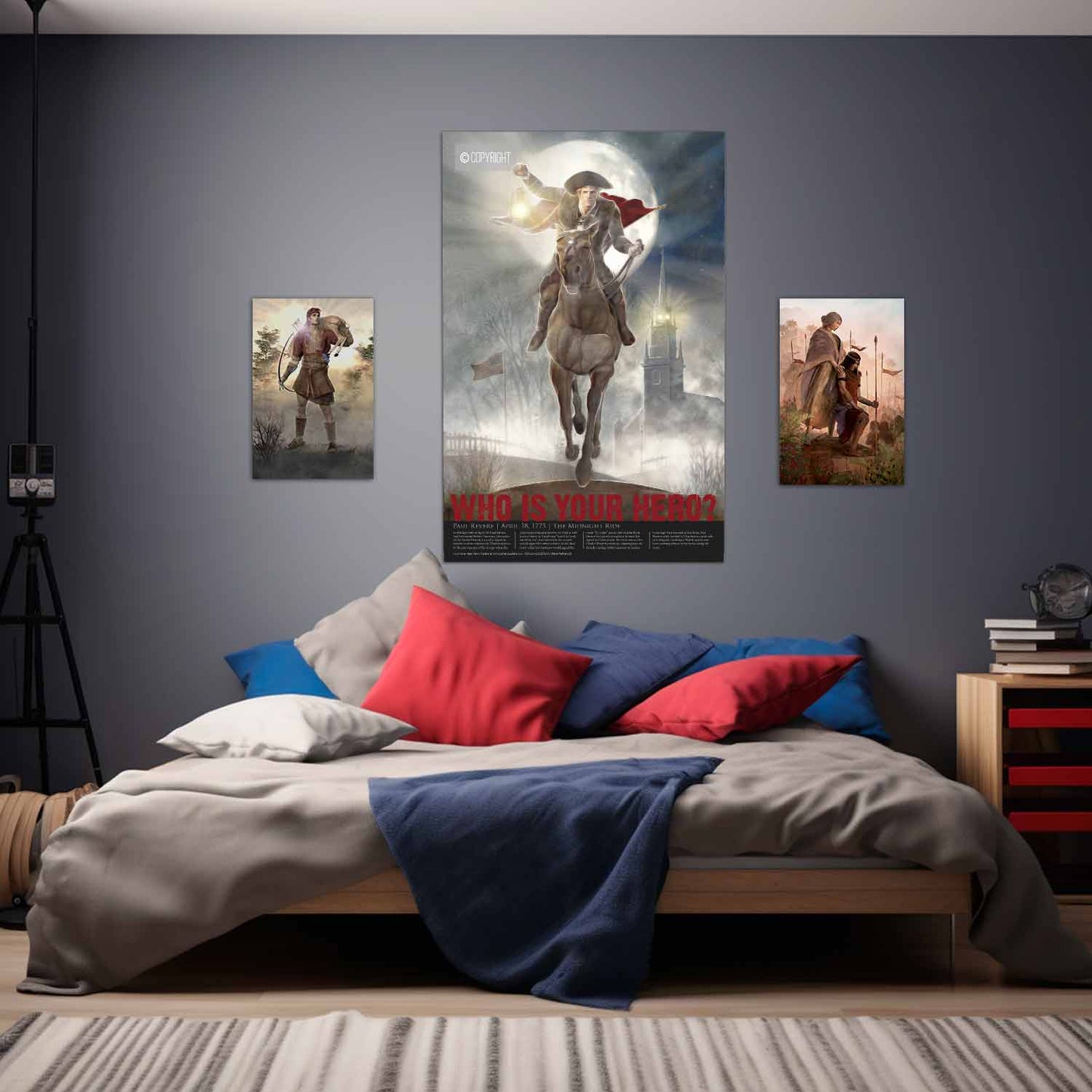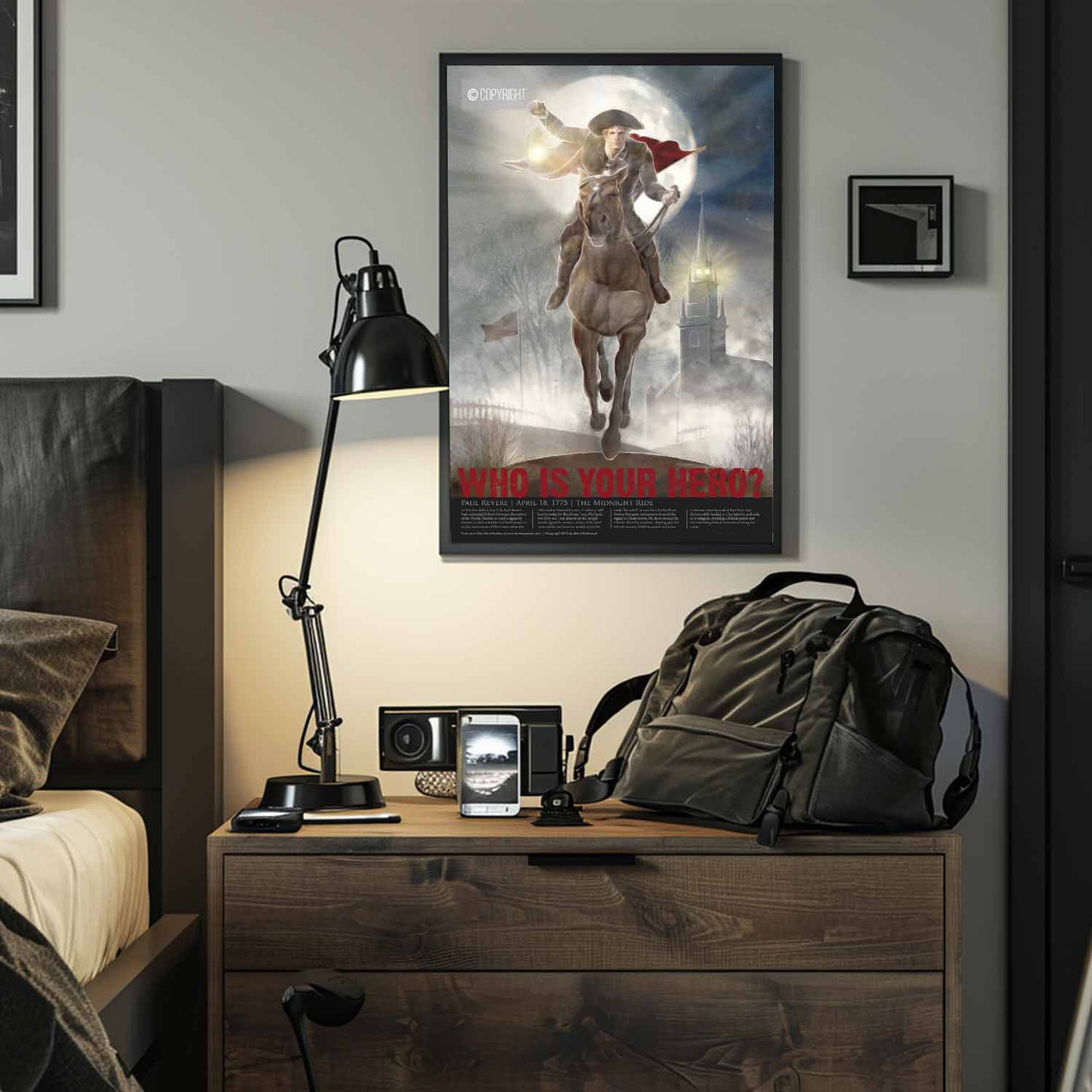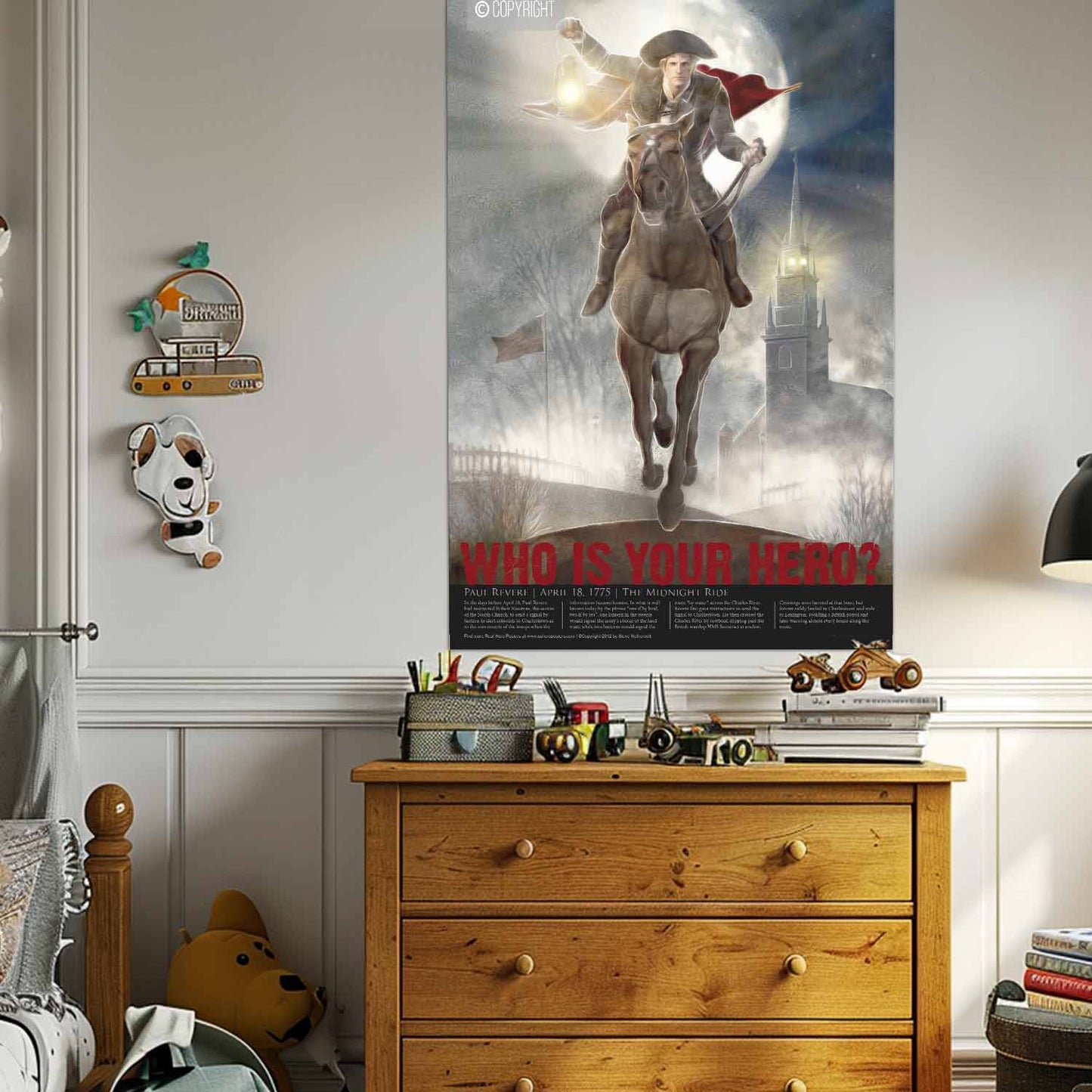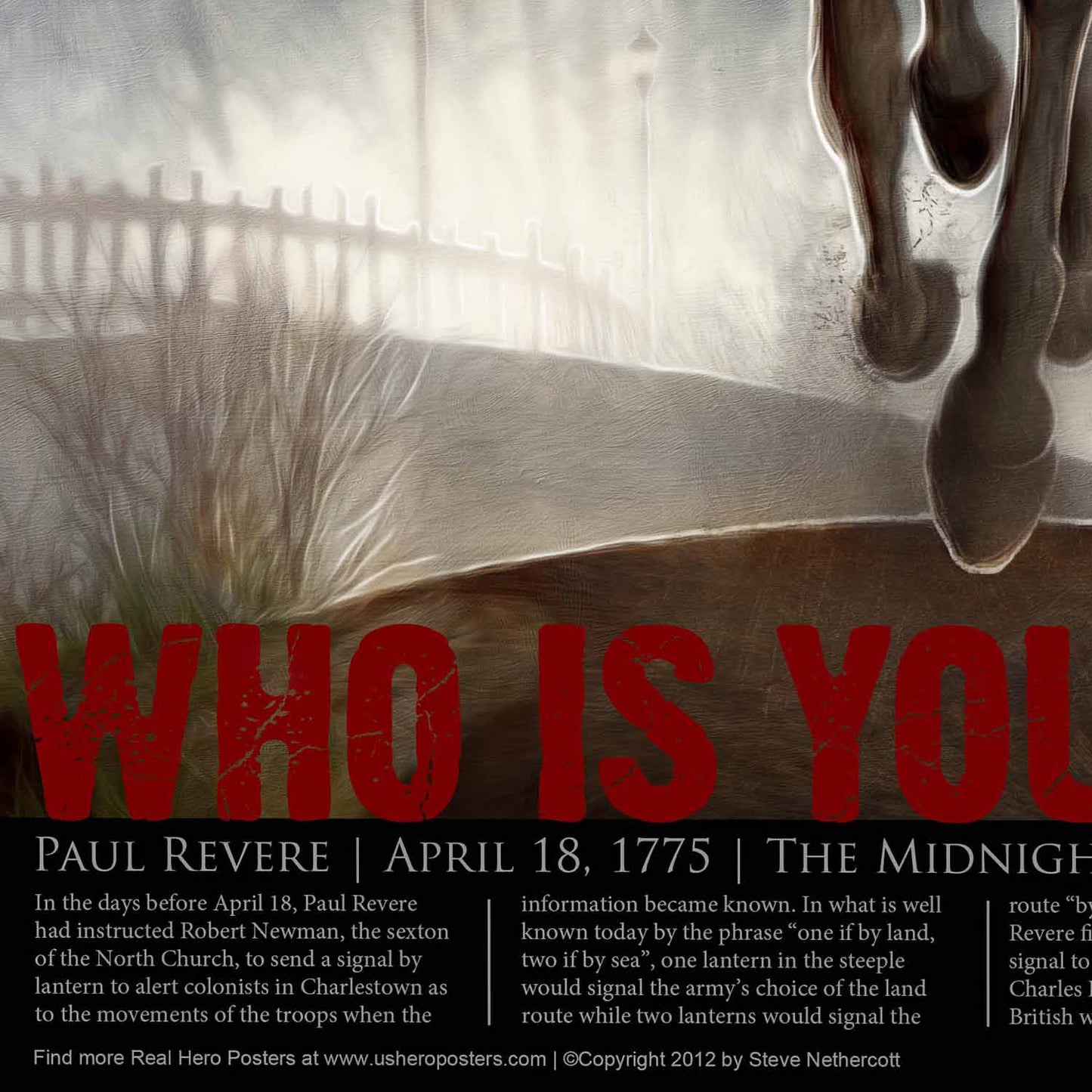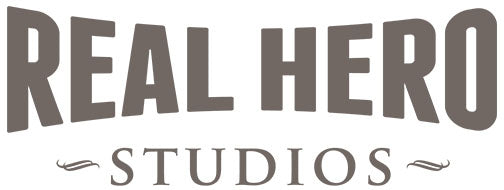Paul Revere | Poster
Paul Revere | Poster
Text On Print:
Paul Revere | April 18, 1775 | The Midnight Ride
Paul Revere was an American silversmith, early industrialist, and a patriot in the American Revolution. He is most famous for alerting Colonial militia of approaching British forces before the battles of Lexington and Concord. Revere was a prosperous and prominent Boston silversmith, who helped organize an intelligence and alarm system to keep watch on the British military.
In the days before April 18, Revere had instructed Robert Newman, the sexton of the North Church, to send a signal by lantern to alert colonists in Charlestown as to the movements of the troops when the information became known. In what is well known today by the phrase "one if by land, two if by sea", one lantern in the steeple would signal the army’s choice of the land route while two lanterns would signal the route "by water" across the Charles River. Revere first gave instructions to send the signal to Charlestown. He then crossed the Charles River by rowboat, slipping past the British warship HMS Somerset at anchor. Crossings were banned at that hour, but Revere safely landed in Charlestown and rode to Lexington, avoiding a British patrol and later warning almost every house along the route. The Charlestown colonists dispatched additional riders to the north.
Riding through present-day Somerville, Medford, and Arlington, Revere warned patriots along his route, many of whom set out on horseback to deliver warnings of their own. By the end of the night there were probably as many as 40 riders throughout Middlesex County carrying the news of the army’s advance. Revere did not shout the phrase later attributed to him "The British are coming!" His mission depended on secrecy, the countryside was filled with British army patrols, and most of the Massachusetts colonists still considered themselves British. Revere’s warning, according to eyewitness accounts of the ride and Revere’s own descriptions, was "The Regulars are coming out."
Following the war, Revere returned to his silversmith trade and in 1800 he became the first American to successfully roll copper into sheets for use as sheathing on naval vessels.
Share
